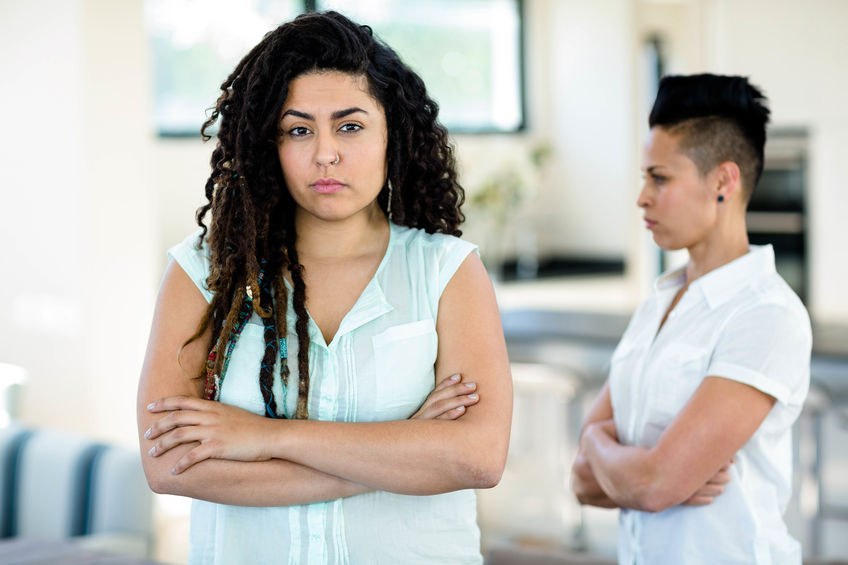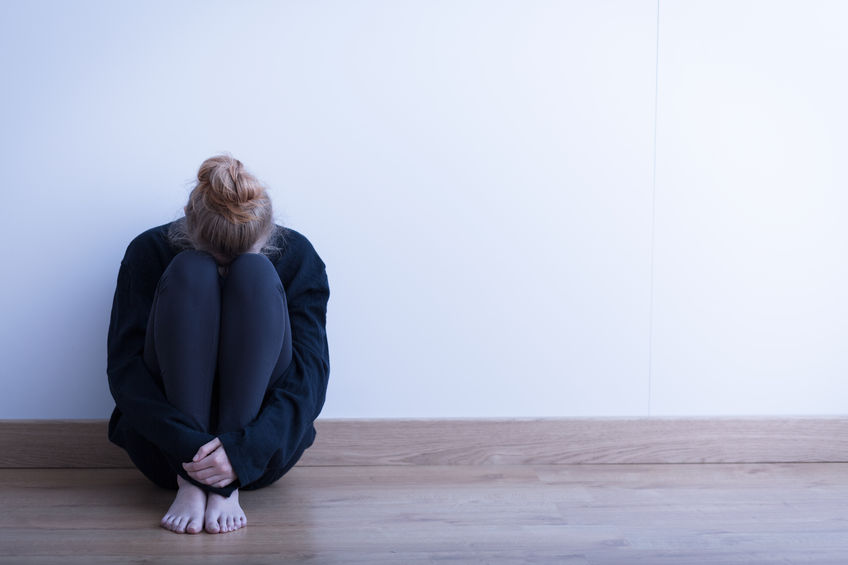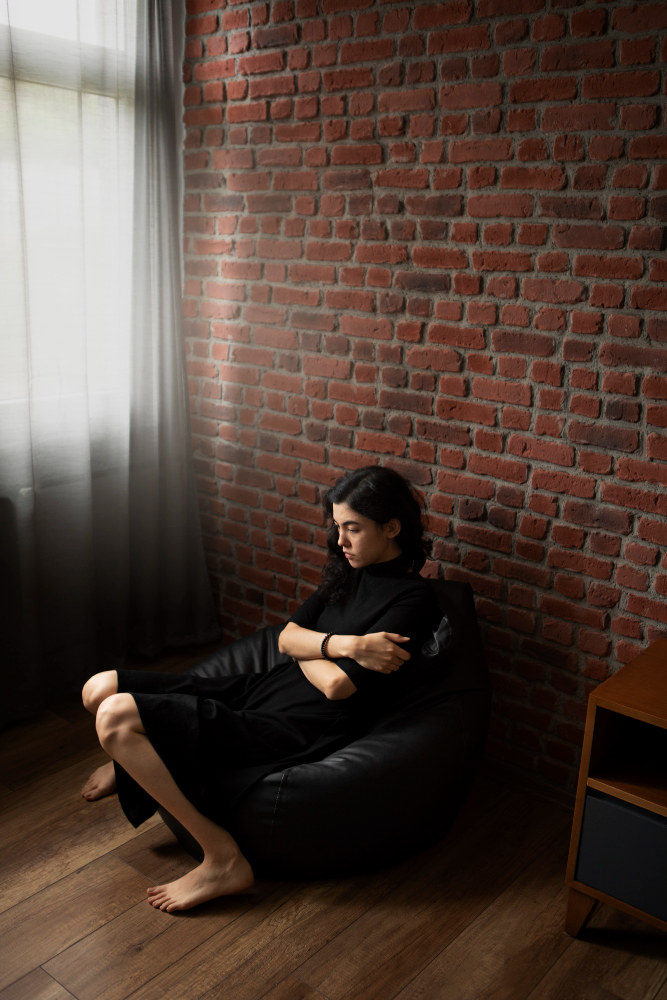Anxiety Therapy



Get Help For Your Anxiety Today
Anxiety therapy can help you learn to manage the stress that occurs naturally in life. There are many kinds of anxiety. “Normal” anxiety often occurs during life transitions: a new job, a new love interest, or a new child coming into the world. This normal sense of “wow something new is happening” is completely natural.
We all need to feel some form of emotions that tell us that life has brought us something new to experience. Anxiety in this form is just fine. We don’t even call it anxiety really, this is more like your nerves or butterflies in your belly.
Anxiety, in a more clinical or concerning sense, can become a real mental health condition. When feelings of worry or nervousness start to prevent you from acting the way you want to or stop you from doing the things you love, it seriously affects your mental health. In our culture, because of the fast-paced world we live in, there are many things that are stressful. Lots of technology, way too much to do, not enough support in our daily lives, worries about money, health, retirement etc.
All of this affects your outlook on the world. This can become overwhelming and is often at the root of worries that can keep you awake at night concerned about your future.
Unfortunately, the bigger issue with all these worries is that we don’t talk about them.
Many people keep their anxiety buried deep inside but then find alternative ways to ease their concerns. Overindulgence in food or alcohol, overspending, hiding in relationships that don’t really work, jumping from job-to-job, constantly staying busy, spending exorbitant time on the computer, watching TV or playing too many video games…
These are all signs that someone may have a deeper fear hidden inside that they need to uncover and address.
If issues like these are affecting your life there are ways to deal with it. Anxiety can range from not sleeping well at night to honest to goodness panic attacks. Sometimes anxiety has obvious causes. Other times, it can be a real struggle to uncover the mix of feeling nervous one moment and relaxed the next.
When we work together, I help you understand the root of your issues and teach you how to “unplug” from your fears. From there you can learn to contain your fears in a more realistic way so you can get back to a normal life.
Anxiety & Depression In The United States
You are not alone in feeling symptoms of anxiety and depression. These conditions are very common. In fact, according to the Anxiety and Depression Association of America, anxiety disorders are the most common mental illness, affecting 19.1% of the adult population 18 and over each year.
Anxiety disorders include panic disorder, obsessive-compulsive disorder (OCD), post-traumatic stress disorder (PTSD), generalized anxiety disorder, social anxiety disorder and phobias.
- Panic disorder affects 2.7% of the U.S. population
- PTSD affects 3.6% of adults.
- Generalized Anxiety Disorder affects 3.1%
- Social Anxiety affects 7.1% of the population
- Phobias?
You can see how many people are being affected by anxiety every day!
About 9.5% of U.S. adults ages 18 and over, will suffer from a depressive illness (major depression, bipolar disorder, or dysthymia) each year. With treatment, 80% of people will show an improvement in their depression within four to six weeks. Treatment for depression includes medication, psychotherapy and support groups. Unfortunately, two out of three people don’t seek treatment and continue to suffer. As part of your treatment plan, psychotherapy, neurofeedback and EMDR are all very helpful and can help you discontinue or reduce the need for medication.
Anxiety Vs Depression: What Is The Difference
Anxiety and depression are two very different mental health challenges that often coexist in people. Anxiety usually takes the form of worry and depression takes on the form of sadness. Both fall on a spectrum and can go from moderate to severe. They don’t always occur together, but in cases where they do, it’s a bit of a chicken and the egg scenario– eg, which one comes first?
Treating your co-occurring symptoms often comes down to what is causing you the greatest stress and dis-ease. We can work on calming one set of symptoms down which often affects the severity of the other.
It is marked by worry, uneasiness, nervousness, and even terror and hysteria. Generally speaking, within the spectrum of worry to hysteria, someone with anxiety has a fear that something bad will happen, and that you can’t trust the world. Your anxiety may even cause you to feel like you are losing your mind. These feelings can be so crippling that they interfere with your daily life.
Anxiety often affects you physically, as well. Body sensations can range from butterflies in your stomach, dizziness and weakness, to full-on feelings of dread and panic. Your heart can beat fast, you start sweating, and it can feel hard to breathe.
Anxiety can also take the form of obsessive thoughts that you can’t turn off, or compulsive behaviors such as excessive exercise, workaholism, or repeated hand washing.
The truth is for most people with anxiety is that if they could turn off the worry and fear, they gladly would. But, they’re just unable to “let it go.”
.
Panic Disorder
Generalized Anxiety Disorder (GAD)
Generalized anxiety disorder is when someone has a pervasive feeling of worry about seemingly small things that are out of their control. These worries may cause you to be indecisive and have difficulty making simple decisions. You may also struggle to focus or concentrate, sometimes to the point of your mind going blank. Or, you may feel like you “overthink” and get lost worrying about worst-case scenarios.
These are the two most common anxiety experiences clients share with me. But, many of my clients also experience depression at the same time. It’s almost as if their worried mind causes their hearts to feel sad about the experiences they’re having.
Depression presents itself in the form of persistent low or sad moods, irritability to full on anger, feeling helpless and hopeless, not being motivated, tearful, a wish to sleep a lot or an inability to sleep– it can go both ways, eating too much or too little, and/or not taking care of yourself (not showering, etc).
When someone is depressed they can’t just “snap out of it.” Everything feels hard and you just don’t feel like yourself. This can cause you to feel lonely and isolated.
Sometimes your thinking is fixated on a broken relationship, loss of a pet, job, friendship, or other relationship that isn’t working out as you wish it would. Whatever the reason, depression leads to an experience of profound sadness that goes beyond the normal “bad day” or even “bad week.” Sometimes it even seems like there is no reason for it at all.
Things you used to enjoy like going to the movies, listening to music, sex with your spouse, or hanging out with your kids don’t bring you the same enjoyment anymore. Once joyful moments in life have lost some of their shine because the depression (and depressed feelings) hang over these events like a dark cloud. And try as you might to get these feelings to “go away,” nothing has worked.
If you’ve experienced a time of sadness that’s gone on longer than you wish it would (whether you noticed it or someone pointed it out to you) this is a sign that there may be something chemical happening inside of your brain that’s affecting how you cope with life. If you’re in this situation, depression treatment can help.
Some examples of depressive disorders include:
Bipolar Disorder
Bipolar is different from depression in general because it’s coupled with times of feeling hypomanic or manic. These “manic” episodes feel like the opposite of depression; they’re full of energy and can feel invigorating and euphoric. But that energy is often super intense and in a manic state, you may have so much energy that you can’t sleep, become very talkative, agitated or irritable, or have racing or jumbled thoughts.
As mania goes on, you may develop an inflated sense of self importance, and impulsively do things you wouldn’t normally do, such as getting involved in an ill-advised business scheme or make relationship decisions that appear impulsive or even dangerous. So while mania tugs the depressed person out of their darkness, it’s often replaced with behavior that’s unsustainable for a person’s health and wellbeing.
Depression and mania often switch back and forth, so the bipolar person never really knows what mood they’ll be in.
And some people rarely have a manic episode. Hypomania is when you experience a less severe form of mania. You have a revved up mood, but it doesn’t have the serious negative consequences that are associated with pure mania.
Dysthymia
Cyclothymic Disorder

Jump to a topic


Can I Have Both Anxiety & Depression
Absolutely. It’s not uncommon for someone with anxiety to also suffer from depression or vice versa. Nearly one-half of those diagnosed with depression are also diagnosed with an anxiety disorder.
For instance, you might be overly worried about something, which is an anxiety symptom. Then, you might also feel hopeless or helpless to deal with what you are worried about. In another example, you might feel anxious and scared of going to meet new people, and also feel depressed about ever being in a relationship.
Here Is How I Can Help Treat Your Anxiety + Depression
I treat both anxiety and depression, sometimes at the same time. As a therapist, I offer several treatments to help you explore your symptoms and work towards finding some much needed relief.
To begin, there are several forms of talk therapy that we can use to find the root cause of your depression, anxiety or both. We work as a team to explore what is going on for you and the techniques we use in the beginning include Cognitive Behavioral Therapy and Psychodynamic Therapy.
Once we have a good assessment of where your anxiety and depression began, we can step into other treatments to bring you some greater relief. Often, this is when we introduce EMDR or Neurofeedback.
How Eye Movement Desensitization and Reprocessing (EMDR) Can Help Heal Your Anxiety & Depression
- EMDR originated in the late 1980’s as a means of treating PTSD (post-traumatic stress disorder) and it essentially works like this. When trauma happens, it becomes “stuck” in the memory with all its original sensory and emotional context. When that trauma is triggered later in life, all of those original sensations are re-lived or re-activated.
- So for example, if you witnessed a terrible divorce and your parents/caregivers neglected your needs at a very young age, when you experience neglect at work or in your primary relationship, it can trigger your nervous system that the same kind of trauma is about to happen.
- This puts your mind, heart and body on “full alert” and you begin to react to your current life as if it were your past.
- This is not a “conscious choice” on your part to react this way; it’s involuntary because your brain was wired to react to neglect by being on alert. The child inside of you “needed” to care or protect him/herself and that same “protective” mechanism is going off in your life today EVEN if you’re in no where the same danger or vulnerability.
- So overreacting to a current experience like one that happened in your past is a way your body/mind/heart are attempting to protect you from harm. We want to soothe that reaction and EMDR is one way we can do it.
- In EMDR sessions, you focus on the stressful event while also focusing on actions the therapist is doing. The dual attention processing ”unsticks” the event so your brain can re-process and integrate the old and the new experiences into an adult context. This removal of the “threat” allows your nervous system to create a new response to stress without the same feeling of panic and intensity that it previously assigned to anything that reminded you of your past trauma.
- Once this happens, naturally, your anxiety and depression that are caused by this memory start to diminish.

Is There A Difference Between Nervous And Anxious?
Nervous usually refers to a passing, manageable feeling that is associated with a specific situation. For example, you might feel nervous before taking a test. But, you don’t start feeling that way until an hour before and it passes when you sit down and begin the test.
In other words, you can handle the feeling and it doesn’t impact your ability to perform on the test. It really doesn’t cause you any real long-lasting distress.
Anxious, on the other hand, refers to feeling like your fear will really negatively impact you. In this same example, you might freeze up and not be able to even take the test. You might not be able to concentrate. Your body might feel out of control, like you’re going to jump out of your skin. Being anxious is debilitating and exhausting.
Even if you are only moderately anxious, over a long period of time, it has a negative impact on quality of life and your success and can be supported so that it has less of a hold over your life.
Does Anxiety Ever Go Away?
Yes, it most definitely can. By utilizing a combination of healing modalities, your anxiety and depression will start to fade. I have seen many clients go on to lead happy and productive lives. These methods help you be able to make the changes that will lead to a better life.

Anxiety Therapist: Frequently Asked Questions (FAQs)
There are excellent treatments for anxiety that help you achieve a calmer and more relaxed state of mind. Unfortunately, people don’t seek treatment and suffer unnecessarily. If you have anxiety, you don’t have to stay worried and stressed out. Therapy, EMDR and neurofeedback can help.
Most people start with neurofeedback. It really calms the mind and body. Once you feel more self-regulated and resilient, then we can discuss what actions you can take, and the changes you can make. Neurofeedback will greatly assist you in being able to take positive action in your life with much more ease.
The first step is starting treatment. Just being able to take that first action is such a good thing, and will give you hope that you are starting the journey to feeling better.
Send the email or make the phone call. Go to the first session. There are excellent treatments for depression. Talk therapy, neurofeedback and EMDR in combination really help.
You will probably need to start making changes in your life as well, but neurofeedback and EMDR make it easier. Keep coming every week, and things will begin to shift
It’s hard to be a young person today. Young adults are dealing with repercussions from the pandemic that impact your behavior and quality of life, social connections and executive function. Fears about climate change, political discord and upheaval, and war all have a serious impact on your sense of safety and security about the future.
If you find it difficult to perform everyday tasks, such as finishing college, holding down a job or taking care of yourself, you might be depressed. You might have problems at school, work or in your personal life and you may feel quite isolated and lonely. Avoiding social activities and feeling sad or crying more than normal are also signs of depression to pay attention to.
Depression can also manifest as frustration, anger, annoyance or irritability, even over little things. You might not be able to get past failures out of your mind and criticize and blame yourself.
Extreme sensitivity to rejection or failure and the need for excessive reassurance can be debilitating. It makes thinking, concentrating and making decisions very difficult. You might even feel that the future is grim and bleak, and have thoughts of death. Low self-esteem and feeling worthless are common symptoms.
Therapy is so important at this confusing time of life. It can help you work through the maze of intense feelings and life decisions in front of you and set you up for a less challenging road ahead.
Yes, many, many people do. Anxiety treatment will teach you how to live the life that works for you without an abundance of old worries, regrets and anxiety about the future. You can also begin to develop skills to manage your anxiety and actions that help to alert you when your anxiety is on the rise or “getting the best of you.”
Remember, as you take on new challenges (job related, family, financial) all of these things bring up risk and risk can spark anxiety. But, these are also part of life. So when you’re taking an important action in your life, you want to learn how to manage the fears that naturally occur without feeling debilitated or as if you can’t do things.
Anxiety and depression treatment will help you feel more self-confident and relaxed. With a stronger understanding of your feelings and what your emotions are trying to communicate to you, you’ll be able to face the challenges life throws at you with greater ease and grace.
Get Help Today
My therapy practice is located in California and I see clients in my Santa Monica and Torrance offices. If you’re looking for help, please reach out to me. I do not have a wait list and can schedule clients quickly. My practice is cash-based which means I do not accept insurance at this time.
You can reach me directly at 310-314-6933 or email me at mindy@mftherapy.com. If you are in a true emergency, please call 911 or the National Suicide Prevention Lifeline at 1-800-273-8255. You can also text NSPL at 988.
- My therapy practice is located in California and I see clients in my Santa Monica and Torrance offices. If you’re looking for help, please reach out to me. I do not have a waitlist and can schedule clients quickly. My practice is cash-based which means I do not accept insurance at this time.
- You can reach me directly at 310-314-6933 or email me at mindy@mftherapy.com. If you are in a true emergency, please call 911 or the National Suicide Prevention Lifeline at 1-800-273-8255. You can also text NSPL at 988.

